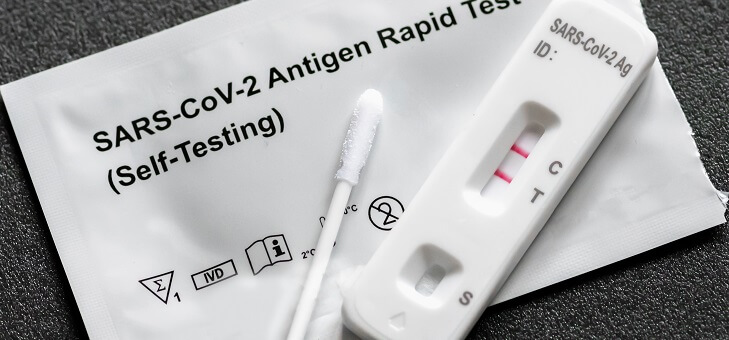Some of the most vulnerable Australians have been left behind by the federal government’s decision not to make rapid antigen tests (RATs) freely available, advocacy groups claim.
Thousands of immunocompromised Australians are being forced to stay at home and lower-income workers are reportedly skipping meals due to the high cost and scarcity of RATs, says the Australian Council of Social Services (ACOSS) and the Australian Council of Trade Unions (ACTU).
In a joint statement, the groups called on the federal government to make RATs free and accessible to all Australians and said the current market-led approach was failing some of our most vulnerable.
“The current distribution model centred on private retail sales to individuals and businesses is not fit for purpose,” the statement says.
“It leaves too many behind and too often the financial means of people will determine whether they have adequate access to RATs. This leaves the whole community vulnerable. People at risk are hiding at home, unable to know who is safe.”
Read: Mild COVID can affect heart health for up to a year: study
The groups also presented a petition, signed by more than 150,000 people, to parliament on Monday.
“This petition shows Australians are fed up with the Morrison government forcing them to fund their own response to a pandemic,” says ACTU president Michele O’Neil.
“Again and again, this government has shifted costs onto individuals, leaving working people to fend for themselves. RATs are a critical part of healthcare for our entire population and should be free and accessible for anyone who needs them.”
Social services group ACOSS says the recent move to make RATs tax-deductible disproportionally helps higher-income earners and doesn’t address the needs of the most vulnerable Australians.
Read: Lessons we can learn from Omicron
“Tax deductions for COVID tests gives the greatest assistance to those who need it less, those on higher incomes who can purchase unlimited supplies at top dollar and won’t help those who need help now the most,” ACOSS says.
“For many, the decision to buy a RAT means a missed meal or a bill that can’t be paid on time – those are real time decisions which cannot be put off.”
Freely available RATs have become a crucial part of opening up post-pandemic in many countries around the world, including the US, UK and across the European Union.
But so far, the federal government has been reluctant to do the same here, and the groups say we are wildly out of step.
Read: Concerns COVID treatments may interact with common meds
“RATs are an essential tool in managing this pandemic and stopping the spread of the virus, allowing us to keep COVID-19 out of homes, workplaces and public venues,” the two groups say.
“The United States and United Kingdom governments are providing free RATs, enabling people to test and get the results without delay to keep workplaces and the community as safe as possible.
“Meanwhile, the situation in Australia stands in stark contrast. The move to large-scale RAT testing has been beset with problems including reliance on market forces to ration inadequate supply, slow delivery, the PCR testing system collapsing under the weight of overwhelming demand, and price gouging from elements of the retail distribution network.”
Should the government make RATs free for all? Or should we foot the bill for our own tests? Let us know in the comments section below.
If you enjoy our content, don’t keep it to yourself. Share our free eNews with your friends and encourage them to sign up.

